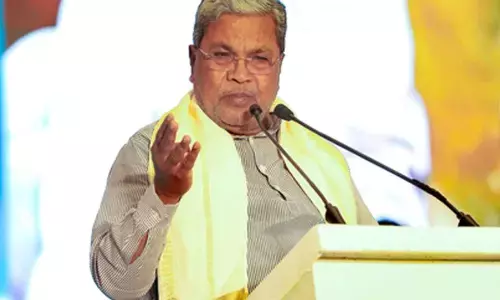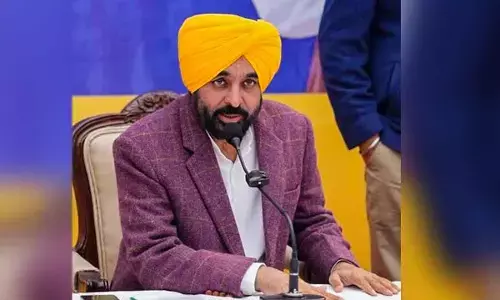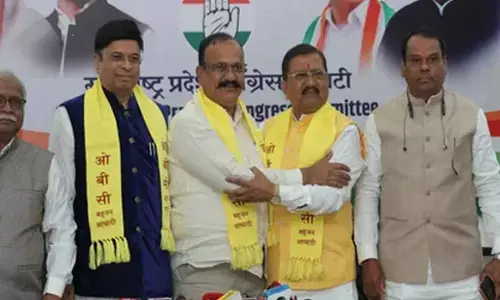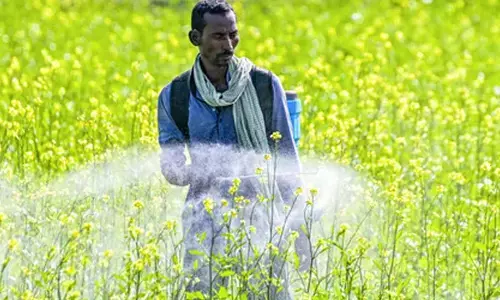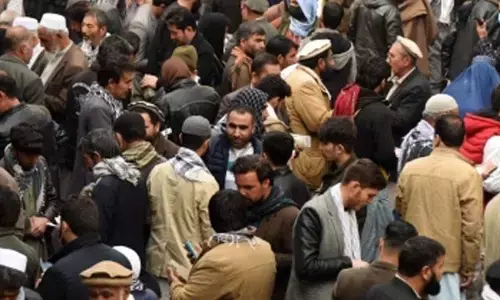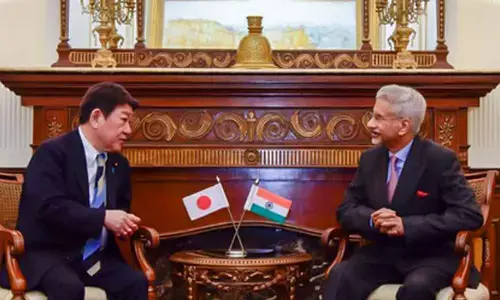National Judicial Appointments Commission
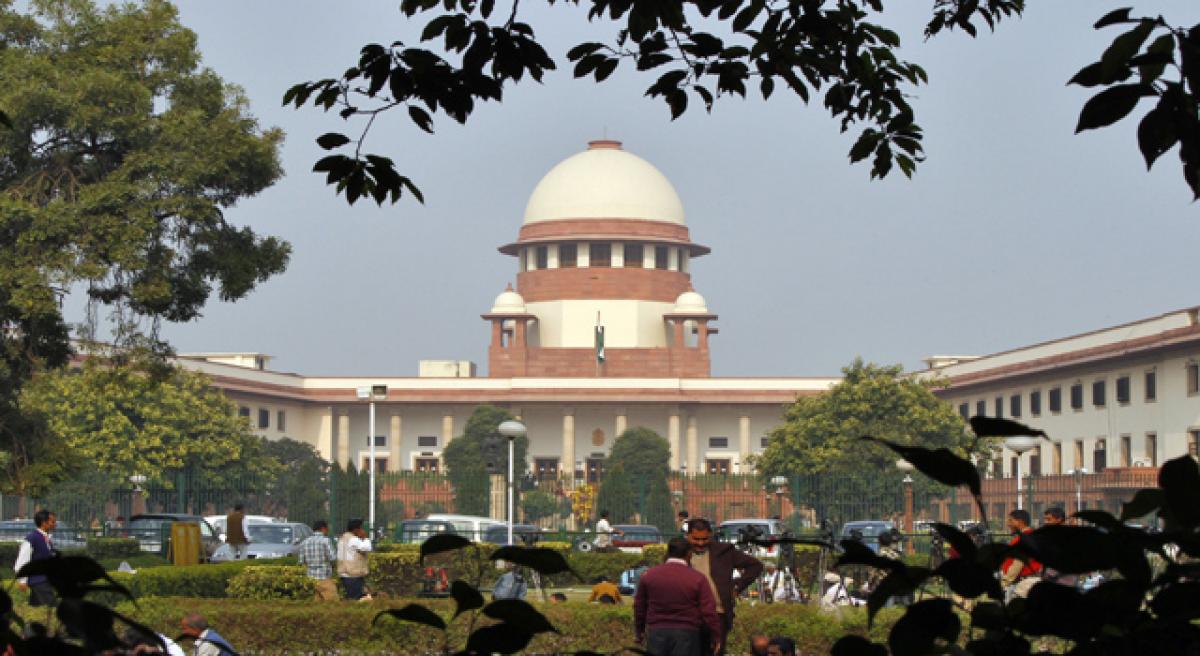
The NJAC was proposed to make the appointment of high court and Supreme Court judges and chief justices more transparent. They will be selected by the commission, whose members will be drawn from the judiciary, legislature and civil society.
The NJAC was proposed to make the appointment of high court and Supreme Court judges and chief justices more transparent. They will be selected by the commission, whose members will be drawn from the judiciary, legislature and civil society.
NJAC bill was introduced in 2014 and was passed by the parliament in 2015 making it 99th constitutional amendment act of India.With the NJAC amendment, Articles 124,217,222 were amended and Art 124 A, B and C were added to the Constitution to make the NJAC valid.
It will replace the collegium. The NJAC consists of the 1)Chief Justice Of India as chairperson 2)The next two seniormost Supreme Court judges 3)Two eminent persons, to be selected by a committee comprising the CJI, Prime Minister and leader of the opposition4)The law and justice minister(with no power to vote).Chief Justice of India: The NJAC shall recommend the senior most judge of the Supreme Court for appointment as Chief Justice of India.
This is provided he is considered fit to hold the office.SC judges: The NJAC shall recommend names of persons on the basis of their ability, merit and other criteria specified in the regulations.Veto power of members: The NJAC shall not recommend a person for appointment if any two of its members do not agree to such recommendation.
It will also recommend names for appointment and transfers of the Chief Justice of High Courts and the High Court Judges. But the Supreme Court of India has recently struck down the 99th Constitutional Amendment as unconstitutional making the NJAC bill Void and has reverted back to the collegium system of appointments.
Collegium system
The method of appointment of the Chief Justice of India, SC and HC judges was laid down in the Constitution. The Constitution stated that the President shall make these appointments after consulting with the Chief Justice of India and other SC and HC judges as he considers necessary.
The collegium system evolved after three landmark judgements of the Supreme Court, known as the ‘three judges cases’: the first, second and the third judges cases.A collegium, consisting of the Chief Justice of India and 4 other senior most SC judges, made recommendations for persons to be appointed as SC and HC judges, to the President.
Three Judges cases
The S P Gupta vs Union of India case (December 30, 1981) is called the “First Judges Case”. It declared that the “primacy” of the CJI’s recommendation to the President can be refused for “cogent reasons”. This judgment led to the executive having primacy over the judiciary in judicial appointments.
Second Judges Case- Advocates-on Record Association vs Union of India case, the Supreme Court in its verdict said that it is required that the CJI be given the “primal” role in such appointments. It overturned the S P Gupta judgment, saying “the role of the CJI is primal in nature because this being a topic within the judicial family, the executive cannot have an equal say in the matter. Here the word ‘consultation’ would shrink in a mini form.
Should the executive have an equal role and be in divergence of many a proposal, germs of indiscipline would grow in the judiciary. Third Judges Case-In 1998, President K R Narayanan issued a presidential reference to the Supreme Court as to what the term “consultation” really means in Articles 124, 217 and 222 (transfer of HC judges) of the Constitution.
The question was if the term “consultation” requires consultation with a number of judges in forming the CJI’s opinion, or whether the sole opinion of the CJI constituted the meaning of the articles. In reply, the Supreme Court laid down nine guidelines for the functioning of the quorum for appointments/transfers; this came to be the present form of the collegium system.
New High Courts constituted by the Government
The Centre has constituted three new High Courts in the northeast — Meghalaya, Manipur and Tripura — taking the total number of High Courts in the country from 21 to 24.
List of high courts having a jurisdiction of more than one state
- Guwahati High Court has jurisdiction over Arunachal Pradesh, Assam, Nagaland, Mizoram.
- High Court of Judicature at Hyderabad for Andhra Pradesh, Telangana.
- Punjab and Haryana High Court for Chandigarh, Haryana, Punjab.
- Mumbai High Court-Maharashtra, Goa, Dadra and Nagar Haveli, Daman and Diu.
- Kolkata High Court-West Bengal, Andaman and Nicobar Islands.
- Kerala High Court-Kerala, Lakshadweep.
- Chennai High Court-Tamil Nadu, Puducherry.
Article 370
Article 370 of Indian constitution grants special status to Jammu and Kashmir(J&K). It was incorporated into the constitution in part XXI, this part deals with Temporary, Transitional and special provisions.
Art 370 was drafted by N. Gopalaswami Ayyangar former diwan to the Maharaja Harisingh of J&K. The article says that the provisions of the art 238 shall not apply to the constitution of the state of the J&K, the powers of the parliament to make laws for the state shall be limited, the residuary power to make laws in case of J&K lies in the hands of legislative assembly of J&K, financial emergency under Art 370 cannot be imposed in the state of J&K, President by notification can declare that this article shall cease to operate after he/she receives the recommendation of the constituent assembly of the state for the same.
Constituent assembly for the purpose of framing the constitution of the state be convened was also the provision of the article. In the wake of this a constituent assembly was created and the constitution was drafted which came into force on 26th Jan 1957. The constitution of J&K has following provisions which are to be noted.
It declares the State of J&K to be an integral part of India; The state of J&K will have separate flag ; concept of permanent resident which is regarded as dual citizenship where the people of J&K are provided with citizenship of J&K and it bars the Indian citizens from other states from purchasing land or property in the state; it provides for governor rule which is specific to the state,
president rule under art 356 cannot be directly imposed the state of J&K, the governor after getting the consent from the President of India can impose governor rule and when it is not possible to revoke it within the first six months from the invocation then President Rule will be imposed in the State; Powers to make laws of preventive detention in the state belong to the state government;
An amendment made to the constitution of India does not apply to the state unless it is extended by a presidential order; the fundamental right to property is still guaranteed in the state; High court of J&K can issue writs only for the enforcement of the fundamental rights and not for any other purposes; national emergency declared under Art 352 on the grounds of armed rebellion will not have effect in the state except with the concurrence of the state government.
Recently the High Court of J&K has declared that Art 370 even though a temporary, transitional and special provision it cannot be deleted from the constitution of India, It is a permanent article.
Art 356- The President’s Rule
Part XVIII of the Indian Constitution lays down emergency provisions under Article 352 – 360.The emergency provisions of the Indian constitution are borrowed from Government of India Act of 1935.Article 355 provides for the duty of the Union to protect States against external aggression and internal disturbance, and Article 356 provides for emergency Provisions in case of failure of constitutional machinery in States.
According to the art 356, the president can impose emergency on receipt of a report from the governor of a State or otherwise, that the government of the State is not being carried according to constitutional provisions.
Recently president rule was imposed in Arunachal Pradesh, Uttarakand. Previously there were several instances where presidential rule imposition was misused, 39th constitutional amendment act of 1975 made the satisfaction of the president on imposing the president rule was made final and could not be challenged in any court of law but it was subsequently deleted by 44th constitutional amendment act of 1978.
Supreme Court in famous case of S.R.Bommai vs Union Of India while dealing with the question as to whether the Presidential Proclamation under Article 356 was justiciable all the judges were unanimous in holding that the presidential proclamation was justiciable.
The Hon’ble Supreme Court held that the proclamation under Article 356(1) is not immune from judicial review and has laid down some guidelines for imposition of presidents rule they are
1)The proclamation is subject to judicial review.
2)the satisfaction of the President must be based on relevant material.
3)Burden lies on the centre to prove that the relevant material exist to justify the imposition.
4)Court cannot go into the correctness of the material but can see whether it is relevant for imposition of presidents rule.
5) the court has power to restore the dismissed state government and revive the state assembly if it finds the proclamation is unconstitutional.
6)the state assembly should be dissolved only after the parliament has approved the presidents rule.
7)secularism is the basic feature of the constitution hence state government pursuing anti secular politics is liable to action under art 356. 8)the confidence of the legislative assembly must be decided only on the floor of the house.
By: Balalatha Mallavarapu








